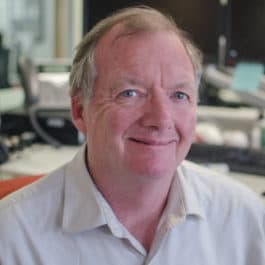Advertisement
U.S. Attorney For Mass. Andrew Lelling On Overseeing The 2020 Election

Election Day is looming on the horizon. Although many have voted through mail or voted early, others will still be flocking to the polling sites on Tuesday.
U.S. Attorney for Massachusetts Andrew Lelling is overseeing the monitoring of conditions during and after the election. He spoke with WBUR’s Weekend Edition.
Interview Highlights
On specific concerns in this election:
"I think in this cycle, what we are most concerned about — and we've taken certain steps preemptively to deal with this — is spontaneous unrest following a closely-contested vote. I think that's where most of our focus is. We haven't seen evidence in the Commonwealth of any organized effort to distort the vote or suppress votes in certain communities ... I think it's more the spontaneous events that might happen if the election result is ambiguous."
On how his office is preparing for possible post-election unrest:
"There's a few ways. We actually benefited greatly from our experience in responding to nationwide unrest following the killing of George Floyd. And what I mean by that is that incident, and the week following that incident, required the Justice Department to suddenly, in real time, figure out how to best respond to spontaneous civil unrest."
"And I think we've brought some of that lesson here. There will be a command post set up at the FBI — it's actually up and running now — to process information as it comes in. There'll be federal prosecutors stationed at that command post. The command post will have representatives from state and local authorities, [and] obviously from various federal agencies. Intel analysts are sifting [through] social media information. We've become pretty good at doing that over the last few years. If there's going to be some premeditated effort to disrupt the vote, or some organized plan for violence after the vote, usually indications of that will pop up on social media because those groups almost always use some kind of social media platform to organize those efforts."
Advertisement
"We actually don't have any specific intel of premeditated efforts to disrupt the vote. Again, I think [what] we're most concerned about is [that] if something goes wrong nationally during the election, or the result is in doubt, that there will be ... incidents of unrest in certain major cities, and so I think we're trying to be ready for that eventuality."
On ensuring confidence in the integrity of the election when President Trump and U.S. Attorney General William Barr make repeated unfounded claims of widespread voter fraud through mail-in ballots:
"Well, my job is to deal with what people in the Commonwealth are thinking and feeling about the upcoming election. That's my bailiwick. And I've been a strong proponent of allowing people to see what you're doing ... so that they understand that federal authorities are watching the situation [and] are responsive to it. I made this point recently when we announced a civil rights task force that I was setting up ... I've been giving interviews to the press, talking about the steps that we are taking, and there is a conscious reason behind that. And that's so people are aware that the government is being responsive."
"Beyond that, I'm not going to comment on what the president or the attorney general said about mail-in ballots. I realize that that's a contentious issue. My job is to make sure that people in Massachusetts are confident that I'm aware of the issues that they're worried about and that I'm dealing with them."
On navigating politicization concerns, given the statement by 20 U.S. Attorneys who were appointed by Republican presidents (including Bill Weld in Massachusetts) that they can not support President Trump's reelection because he has politicized the Justice Department:
"I disagree about the politicization of the Justice Department. I think that, from the outside, certain people have concluded that that's happening, and we're living in an extremely politically polarized time, in which if our elected officials or appointed officials arrive at a conclusion other than what a particular segment of the populace wants to hear, immediately the claim is that politicization has occurred, and I don't agree with that."
"As to the election itself? ... I mean, there's 94 United States Attorneys, right? This is the corner of the country that I am responsible for: the Commonwealth of Massachusetts. All I can do is take the steps that I have taken to show people that our top priority is that the vote comes off in a routine and calm manner and that we will deal with election-related violations should they arise. That's my job. That's what we're going to do. I think over the last several years here, people have seen that my office doesn't make decisions on a political basis. We call balls and strikes, and so I think the population of the Commonwealth has confidence that that's what we'll do here."
On whether federal poll monitors will be at polling places in Massachusetts:
"Yes, they will. What happens is my office talks to the civil rights division at the Justice Department about what those locations should be in the Commonwealth. And we hammer out a plan ... Because of COVID concerns, they don't want people flying around the country. So most of the poll watchers will come from my office."
On the possibility of voter intimidation:
"Voter intimidation can take many different forms. I mean, I think ... the clearest form is an organized effort to prevent voters from certain communities or in certain communities from going to their polling places and taking advantage of their right to vote. Direct voter intimidation cases don't happen that often. They do come up ... and this is one of the reasons why you place poll watchers. If we see evidence of it, then obviously we will investigate."
This segment aired on November 1, 2020.

